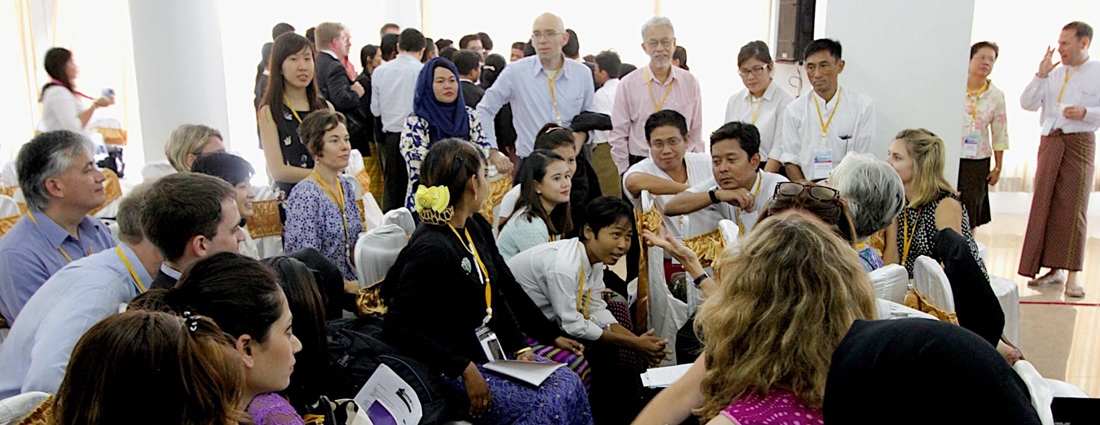What do compulsion and compassion have to do with strengthening pro bono culture in the region?
This is a question I was asking myself after three action packed days at the 6th Asia Pro Bono Conference in Kuala Lumpur, a few weeks ago. I joined nearly 450 lawyers, law students, academics, non-profit representatives and activists to share best practice and consider how we can strengthen access to justice through pro bono work across Asia.
During the conference, compassion fatigue or the burnout people feel when they help others was raised. There was a unanimous feeling that there was no such thing as compassion fatigue, if anything we identified a universal compassion high due to the work we do. But we were preaching to the converted. As iProbono’s South Asia Regional Director and a lawyer who has worked in legal aid, compassion fatigue was a new concept to me and led me to consider more closely (a) why lawyers choose to do pro bono work and (b) whether in strengthening a culture of pro bono, we need to consider strategies to make this type of work compulsory.
Discussions with colleagues from all over South Asia including Dhaka, Kathmandu, Karachi, Yangon and Delhi raised certain recurrent and shared themes. Organised pro bono systems are required to bridge the gap created by inadequate state legal aid provisions that leave vulnerable communities with little to no access to justice. In this regard, we discussed the notion of compulsion and working with bar associations to make pro bono work a requirement for all lawyers. At the same time, compassion was raised; there are lawyers who want to engage in pro bono practice to use their expertise on meaningful cases for vulnerable beneficiaries. These lawyers don’t always know how to find the right cases or have access to wider networks of practical support to carry out the legal work required. Cross regional partnerships and knowledge sharing across jurisdictions could help to create a more responsive and supportive pro bono environment across the region that caters to both models: compulsion and compassion.
Pro bono lawyering hit the headlines in India as I returned to our Delhi office from the conference. Following the recent judgment delivered in Indira Jaising v. Supreme Court of India & Others [Writ Petition (C) No. 454 of 2015], new Supreme Court guidelines to govern the selection of senior advocates specify pro bono work done as a key criteria for selection and promotion. The petition filed in July 2015, contested the constitutional validity of ss. 16 and 23(5) of the Advocates Act, 1961 with the aim to change the biased, ‘opaque and discriminatory system’ of designating lawyers as senior advocates in the country.
This recent decision and resulting guidance is an important step in the right direction towards strengthening access to justice through pro bono work. While the state’s recognition that all lawyers should provide free legal services in some capacity for the public good is laudable, it will be a challenge to create robust systems to implement this in reality. In 2010, iProbono started its work to promote a culture of pro bono within the legal fraternity in India, and has created a vibrant legal community whereby legal service providers who want to engage in pro bono work can access suitable projects. We do not work on the basis of compulsion but welcome the move towards recognising the value of pro bono work in India.
The varied experience showcased at the Asia Pro Bono Conference made it clear that we come to pro bono work for a variety of different reasons, informed in some cases because we have to or because we want to. It is by acknowledging our shared humanity and shared responsibility to make people’s lives better through pro bono practice that we can create a meaningful impact on the lives of the individuals who need our assistance most.
Mariam Faruqi – South Asia Regional Director, iProbono







